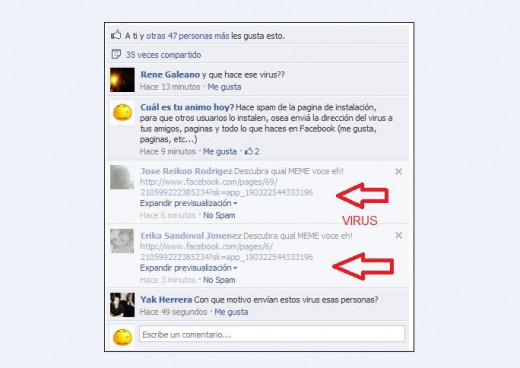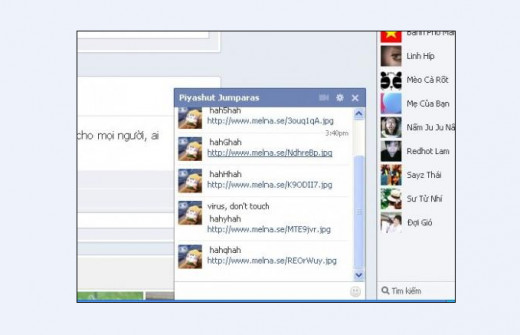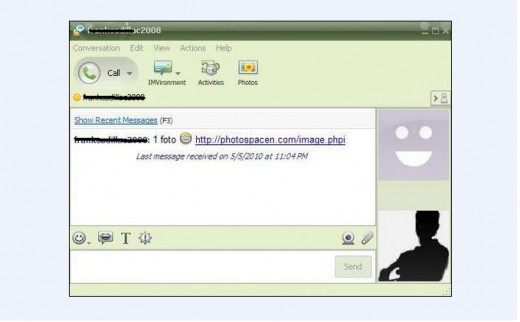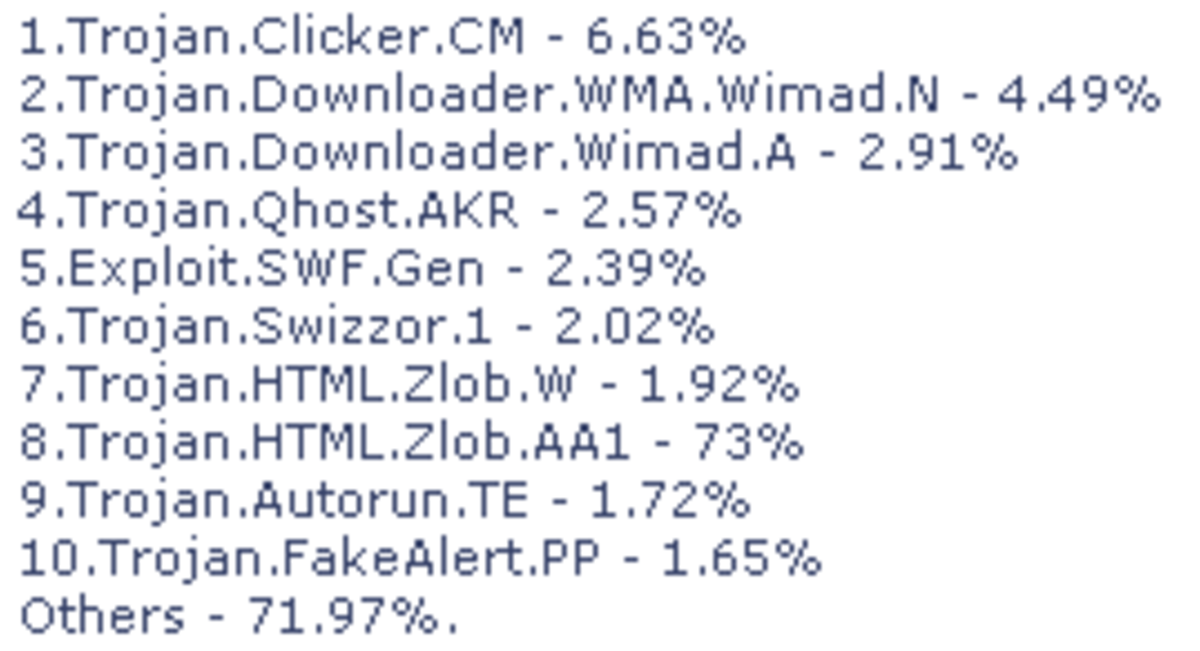How Does a Virus Infect Your Computer?
“Why is my computer infected with virus and what should I do to get rid of this problem?” This is the question I occasionally get from customers when their computer has unusual issues. Hopefully this article will help you find out the answer to these questions.
There are a lot of damaging software on your computer such as Trojans, adware, worm, spyware, botnet, keylogger... In this article, these dangerous software above are called as computer viruses. This will help you not to be confused by the concept.
To help you understand clearer, I will summarize this article into these main parts:
- How does your computer get infected with a virus?
- Introduce how viruses spread and the several methods that virus may use to disguise themselves and spread to your PC.
- Great Tips to remove Virus from PC.
Computer Problem !
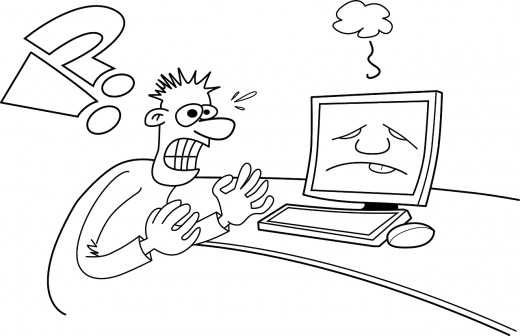
1. 10 Signs that your PC is infected with virus, trojan, adware...
- It takes a long time when starting your computer and it runs slower than usual: Virus is the reason why your computer starts slowly; However, the computer starts to run slower also because of other reasons.
- There are autorun.inf files in the drive: The autorun.inf files are usually hidden files. If you enable the mode for showing hidden files, you will find this file.
- Unable to open the Task Manager, Task Manager is blurred: Right-click on the taskbar (the horizontal bar located at the bottom of the screen). You will see the Task Manager is blurry which cannot be chosen.
- You can’t access different websites of the security: Some viruses block the connection from your computer to the website, main server of security (e.g.: Kido, Sality ...). If you can’t access many websites such as norton.com or Kaspersky.com while you are still able to access other pages, your computer is infected with viruses.
- There are strange notifications when starting your computer. Computer viruses usually cause errors on your operating system, so be careful if there are strange notifications on your computer.
Tip: Look for the phrase in the error notifications on Google, you may find out the cause of this problem. - You can’t connect to the Internet, or the connection drops or is slow sometimes. This is also a sign which shows that the computer is infected with a virus.
- After infecting a computer, viruses often copy all of your data. Then it sends them to the main server in order to steal your data. This process will make your network become overloaded.
- Yahoo, Facebook, and your mail account automatically send messages to friends, acquaintances with strange links.
Recommendation: You should change the password if you get into these problems above. In addition, you should limit the login on different computers, you will not know what was installed on these computers. - To sum up: If your computer has one of these signs above, be careful because your computer may be infected with viruses. Do not worry, I'll show you how to remove them in Part 3 of this article.
Picture for Virus on Facebook, Yahoo...
Click thumbnail to view full-size


2. Learn how to avoid introducing viruses to your computer and passing them.
"I didn’t do anything! Why is my computer infected with virus? "This is the question which I heard a lot from many customers. I want to insist that: "This is you - the user of computer is the one who brought viruses into the computer." If you do not believe, read part 2 of this article on "The ways of spreading computer viruses", and you will know how you brought viruses to your computer.
Currently, the virus can infect your computer by 3 main ways:
- Internet: (yahoo, email ...)
- External Memory: Memory Card, USB, portable drive...
- Local Network (LAN, WAN ...)
2a. Internet
People who create viruses will take advantage of the internet to spread out the viruses. Specifically, through email account, chat tools (Yahoo, Skype ...), social networks such as Facebook, Twitter and forums.
Specific forms:
- They will send mail to you with the attachments of virus file or links that contain viruses
- Hijacking chat tools, social network accounts and use it as a tool to spread virus link. They will create a new status, which contains virus link, send a message with the virus link.
- Post link above on forum or post directly file which contains viruses, attach in a certain software.
I have a small test with a few of my friends. I created an email which is similar to the email they have received from Facebook. The content of this email notification shows that someone has sent a message to them on Facebook. As a result, the majority of them have opened the email and click on the link to view without paying attention to the email address of the sender.
How to avoid computer viruses:
- Install an antivirus software on your computer, even a free antivirus software. It is necessary to protect your computer.
- A suspicious email or message from someone you know. Be careful, Facebook, mail, yahoo account of them may have been stolen.
- When the email is sent automatically (from the forum, the website you are already registered, paypal, facebook ...) containing the link. Do not click on the link, let's see who sent it.
Ideally, you should go directly to the page, instead of opening the link in the email. - If you participate in forums, you are trying to download one software or click on a link which was sent by forum members. Please find out more information about this member. Are they worth to trust? And also pay attention to the feedback from other members.
2b. External memory (Memory card, USB, portable drive)
You may plug the USB into a computer which is infected with viruses, then plug into your computer without using any antivirus program. Congratulations, your computer has been infected with viruses. Remember that most of the automatic virus infects your computer when you plug the USB in.
How to avoid virus infection from external memory:
When you plug in the USB, memory card, portable drive on the computer. You should use antivirus software to scan it before opening. This is a simple and effective experience for preventing virus from spreading through external memory. However, many people do not pay attention to this.
Use one additional anti-virus software on the USB. We encourage that you should use USB Disk Security. It is a software that helps you easily remove viruses on USB and other external memory without slowing down your computer.
2c. Local Area Network (LAN)
The computers in the local network are more likely to spread out the virus to others. Therefore, to prevent computer virus you should pay attention to these things:
- Use an anti-virus software which has firewall function.
- Turn on your Windows firewall: Click Start button => Control Panel => SecurityCenter => Windows Firewall. On the General tab, select On.
Computer viruses usually spread in one of three ways
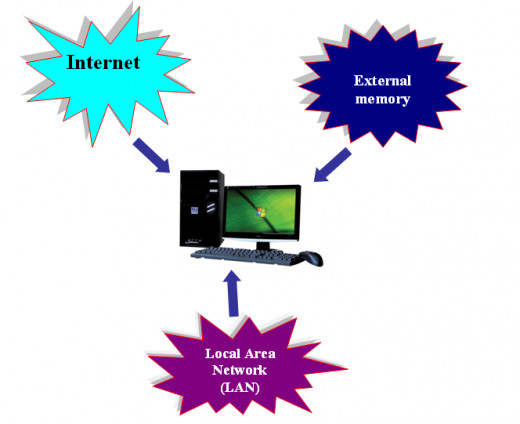
Prevent spyware from infiltrating your computer by installing and updating Anti-malware software.
3. How to remove all viruses from your computer in 3 steps?
In this section, I won’t go too deep into how to remove each type of virus; However, I will show you some solutions for removing viruses automatically by the antivirus software.
Follow the 3 steps below:
- Step 1: Remove viruses by a trustworthy antivirus software
I encourage you to install and use one of the following antivirus software below:
- Kaspersky Internet Security
- Norton Internet Security
- Bitdefender
- AVG
After installation process, you should scan the whole computer (full scan). Follow the instructions of the software to remove away the virus.
- Step 2: Remove malware, adware
Anti-virus software is not good for some illegal malware or adware on your computer.
You will need to install other additional tools in order to remove the ads on your web browser. There are some reliable software for removing malware include:
- Malwarebyte
- SupperAnti Malware
Step 3: Fix issues on operating system
Some software like Kaspersky have additional tools to restore the operating system which is failed. However, it just can recover some basic errors.
You can read the following article:
If the software cannot fix all the errors which are caused by viruses, you can repair operating system using Windows Repair in Windows CD. Consult ideas from the computer technicians to get the best support.
This article is based on the experiences of the author. I look forward to receiving comments from readers.
What antivirus you have on your PC?
© 2015 Thuong Do Van

